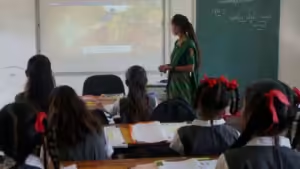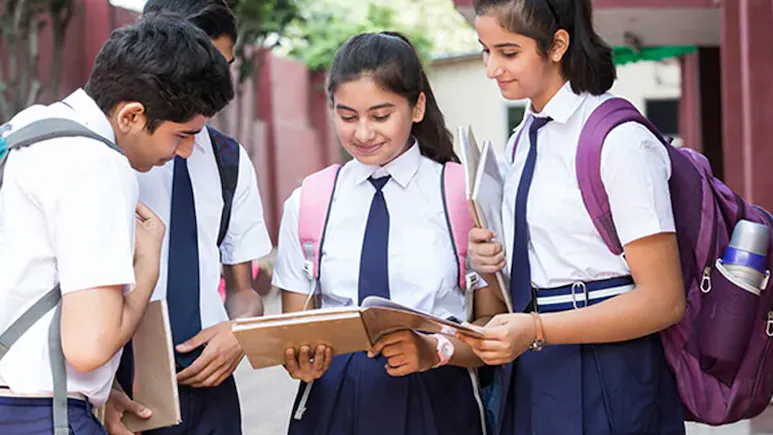The Education Conundrum
As the academic year 2024-25 kicks off, Class 6 students across India are facing a peculiar and challenging situation: they are starting school without their textbooks. The delay in the release of new NCERT textbooks for Social Science, Mathematics, and Science has left educators and students scrambling. This article delves into the intricacies of this delay, its impact on students and teachers, and the broader implications for the education system.
The Unexpected Delay
A Troubling Start to the Academic Year
In July 2023, the Ministry of Education (MoE) established the National Syllabus and Teaching Learning Material Committee (NSTC) to develop new textbooks for classes 3 to 12. The ambitious plan aimed to have these textbooks ready within seven months. However, as the school year begins, Class 6 students are left without textbooks for key subjects due to significant delays. This section explores the reasons behind the delay and the challenges faced by the NCERT in meeting the tight deadlines set by the NSTC.
Ambitious Deadlines and Unforeseen Obstacles
The NSTC was tasked with an immense responsibility: to overhaul the curriculum and textbooks in record time. While the committee managed to develop and distribute textbooks for Class 3, the drafts for Class 6 are still pending. The delay has been attributed to the comprehensive nature of the revisions and the need for thorough vetting and approval processes. Officials have indicated that the new textbooks might not be available for another two months, leaving a significant gap in the learning resources for students.

The Impact on Students and Teachers
Navigating Education Without Textbooks
The absence of textbooks poses a unique set of challenges for both students and teachers. With no physical or digital copies of the new textbooks available, educators are forced to rely on supplementary materials and innovative teaching methods. This section examines how teachers are adapting to the situation and the strategies they are employing to ensure that students do not fall behind in their studies. newsreporto.com
Innovative Teaching Methods and Resourcefulness
Teachers are showing remarkable resourcefulness in the face of this challenge. Many are turning to digital resources, online platforms, and creating their own materials to bridge the gap. Collaborative teaching, peer learning, and the use of multimedia resources have become essential in maintaining the continuity of education. This section highlights some of the creative solutions being implemented in classrooms across the country.
The Broader Implications
A Glimpse Into the Future of Education
The delay in the release of textbooks not only affects the current academic year but also raises questions about the future of educational reforms in India. The fourth generation of NCERT textbooks, which are in the process of being developed, are expected to bring significant changes to the curriculum. This section explores the potential long-term implications of these delays and what it means for the broader educational landscape.
Aligning with the New Education Policy
The introduction of new textbooks is a critical step in aligning with the New Education Policy (NEP) 2020. The NEP aims to revolutionize the education system by making it more holistic, flexible, and multidisciplinary. The delayed textbooks are expected to reflect these changes, emphasizing critical thinking, creativity, and experiential learning. This section delves into how the upcoming textbooks are designed to meet these objectives and the anticipated benefits for students.

Voices from the Ground
Perspectives from Educators, Students, and Parents
The delay in textbooks has elicited a range of responses from different stakeholders in the education sector. Teachers express concerns about the additional workload and the challenge of maintaining student engagement without the primary teaching resource. Students share their experiences of coping with the uncertainty and adapting to new learning methods. Parents express their apprehensions about the potential impact on their children’s academic progress. This section captures these diverse perspectives and the collective sentiment on the ground.
Real Stories and Testimonials
To provide a more comprehensive understanding of the situation, this section includes real stories and testimonials from educators, students, and parents. Their firsthand accounts offer valuable insights into the day-to-day realities of navigating education without textbooks and highlight the resilience and adaptability of the education community.
The Way Forward
Preparing for the Arrival of New Textbooks
While the delay presents significant challenges, it also offers an opportunity to prepare effectively for the arrival of the new textbooks. Educators and policymakers are working diligently to ensure a smooth transition once the textbooks are available. This section outlines the steps being taken to facilitate this process and the support systems being put in place to aid teachers and students.
Embracing Change and Looking Ahead
As the education system awaits the new textbooks, there is a collective focus on embracing change and looking ahead with optimism. The delay has underscored the importance of flexibility, adaptability, and the need for robust contingency plans in education. This section concludes with a forward-looking perspective, emphasizing the lessons learned from this experience and the potential for positive outcomes in the future.
Navigating the Transition
The delay in the release of new NCERT textbooks for Class 6 has undeniably disrupted the start of the academic year. However, it has also highlighted the resilience and adaptability of the education community. As educators, students, and parents navigate this transition, there is a sense of anticipation for the changes that the new textbooks will bring. This period of adjustment is a testament to the enduring commitment to quality education and the continuous pursuit of improvement in India’s educational landscape.











